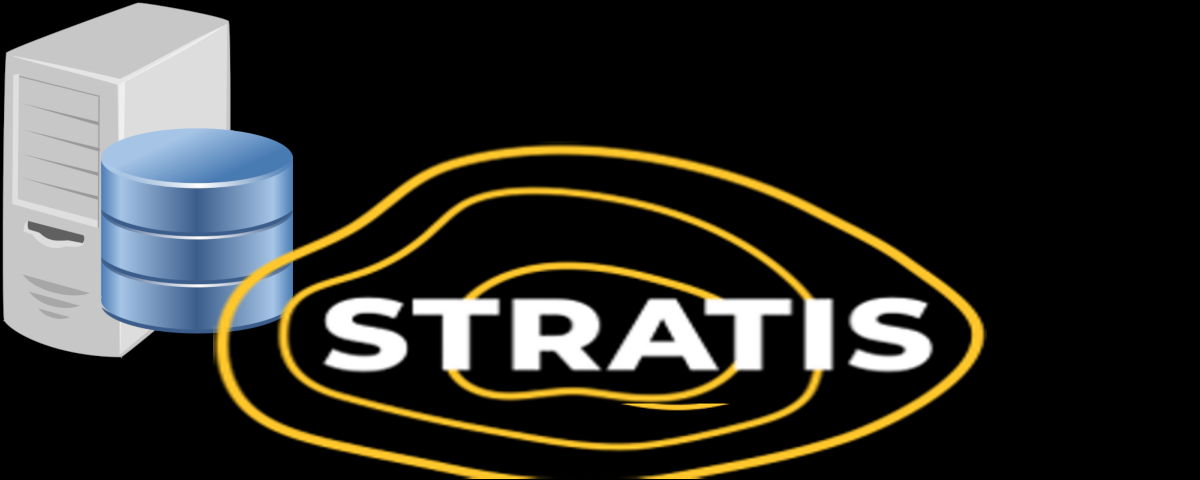
Stratis is a daemon developed by Red Hat and the Fedora community to unify and simplify user space settings which configures and monitors existing components of the underlying Linux storage components of LVM volume management and XFS file system over D-Bus.
Stratis is not a user-level file system like the FUSE system. The Stratis configuration daemon was developed to have feature parity with ZFS and Btrfs. As it is based on LVM and XFS company proven components with over a decade of enterprise deployments and lessons learned from System Storage Manager on Red Hat Enterprise Linux.
EIn other words, Stratis automates local storage management. On a single disk system, Stratis can make it more convenient to logically separate / home from / usr and enable rollback snapshot on each separately.
In larger configurations, Stratis can make it easy to create a multi-tier, multi-disk storage pool, monitor the pool and then manage the group with less effort from the administrator.
About Stratis
Stratis provides ZFS / Btrfs style features by integrating layers of existing technology- The Linux device mapper subsystem and the XFS file system. The stratisd daemon manages collections of block devices and provides a D-Bus API.
Stratis-CLI provides a command line tool Stratis, which in turn uses the D-BUS API to communicate with stratisd.
Unlike ZFS and Btrfs, Stratis components work only in user space and they do not require loading specific kernel modules. The project was initially presented as not requiring the management of a storage systems expert to manage the ratings.
D-Bus API and cli-utility are provided for management. Stratis has been tested with block devices based on LUKS (encrypted partitions), mdraid, dm-multipath, iSCSI, LVM logical volumes, as well as various hard drives, SSDs and NVMe drives.
If there is a unit in the group, Stratis allows using logical partitions with snapshot support to revert changes. On the other hand, when several units are added to the group, it is possible to logically combine the units in a continuous area.
Features such as RAID, data compression, deduplication, and fault tolerance are not yet supported, but are planned for the future.
Stratis also has other features such as dynamic allocation of storage space, snapshots, integrity, and layering for caching. The project code is written in Rust and distributed under the MPL 2.0 license.
Today the project was updated after a year of development, since the launch of the project was recently published Stratis 2.0. In which in the announcement of this new version it is mentioned that requirements for the Rust compiler version have been increased (at least 1.37, but 1.38 is recommended).
Besides that worth highlighting a significant change in the version number that is associated with the renaming of some D-Bus interfaces and the redesign of the organization of work with D-Bus (A set of primary fundamental properties is selected, and the remaining properties are now requested using the new FetchProperties method.)
In addition to the CLI version is significantly more robust. Previously, there was a category of error conditions in groups, file systems, and block devices that would render the CLI virtually unusable.
How to install Stratis?
Stratis is available for RHEL, CentOS, Fedora and derivatives. Its installation is quite simple since the package is inside the RHEL repositories as well as its derivatives.
In order to install Stratis just run the following command in a terminal:
sudo dnf install stratis-cli stratisd -y
Or you can also try this other:
sudo yum install stratis-cli stratisd -y
Once installed on the system, must enable Stratis services, they do this by executing the following commands:
sudo systemctl start stratisd.service
sudo systemctl enable stratisd.service
sudo systemctl status stratisd.service
For more information on configuration and use, you can visit the following link. https://stratis-storage.github.io/howto/